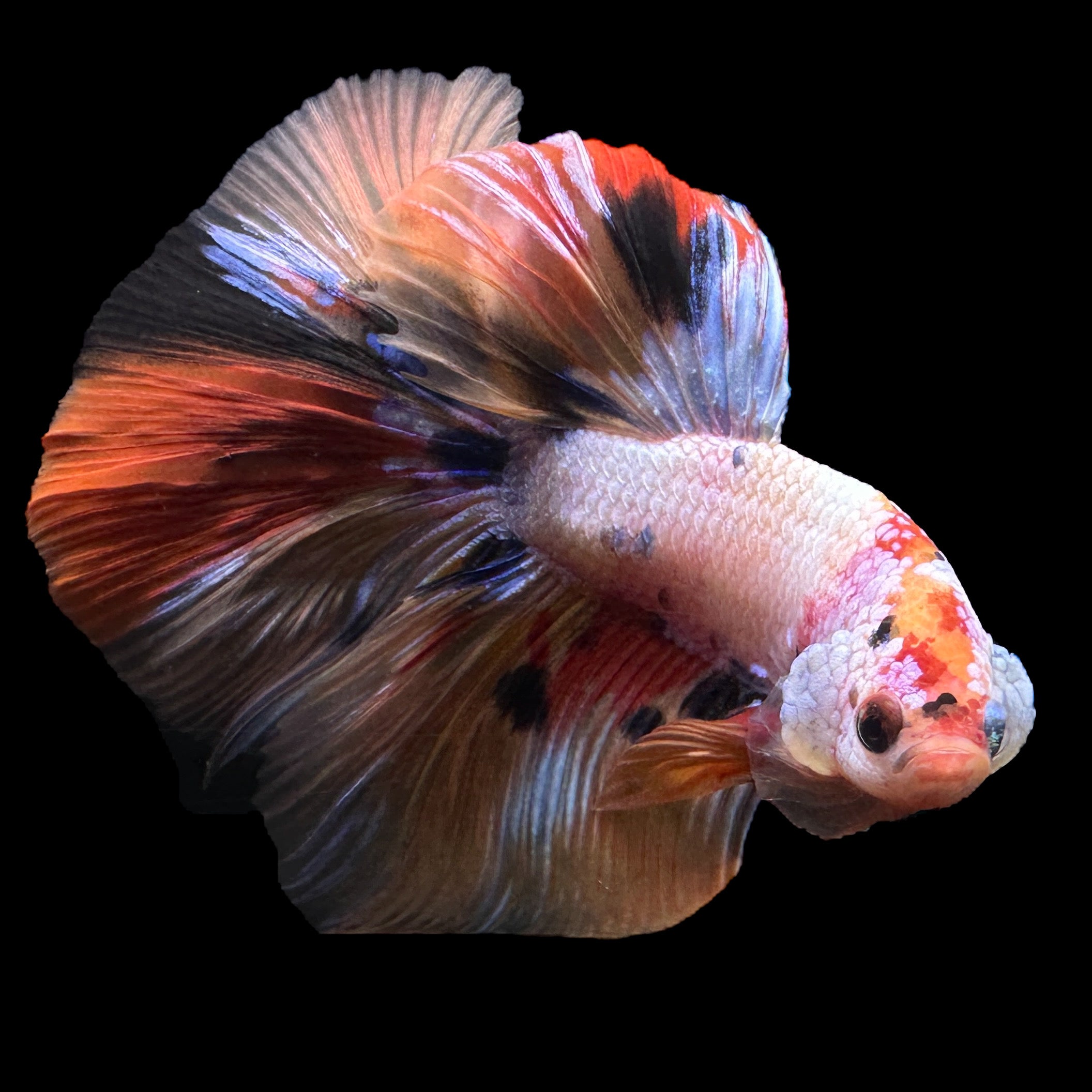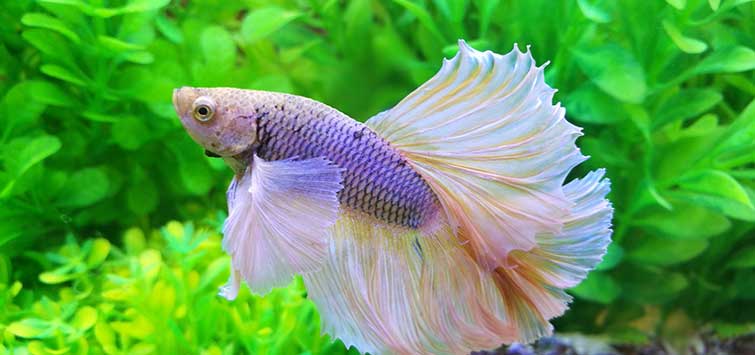Betta Fish Diet Regimen: What to Feed Your Betta for Ideal Health
Betta Fish Diet Regimen: What to Feed Your Betta for Ideal Health
Blog Article
The Ultimate Guide to Betta Fish Treatment: Important Tips for Preserving a Healthy And Balanced and Growing Fish Tank Setting
Reliable Betta fish care demands a thorough understanding of their distinct environmental and physical needs. Developing a suitable fish tank starts with choosing the right container size and ensuring ideal water conditions, which are vital for the health and health of your Betta.
Choosing the Right Container
Selecting the proper container for your Betta fish is essential to guaranteeing its wellness and well-being. Bettas prosper in settings that mimic their natural habitats, which commonly contain calmness, cozy waters. A container size of a minimum of 5 gallons is advised to provide sufficient swimming space, as smaller sized tanks can result in anxiety and wellness concerns for these vivid fish.
When choosing a tank, think about the storage tank's shape and filtering system. A rectangle-shaped storage tank is better to a dish, as it supplies extra surface for oxygen exchange. In addition, a dependable filtration system is necessary to preserve water quality and minimize the frequency of water changes (betta fish). However, it is necessary to choose a filter with a mild circulation, as Bettas are not solid swimmers and might struggle against strong currents.
Temperature level guideline is one more key variable; Bettas like water temperatures in between 76 ° F and 82 ° F. Buying a good heater will certainly guarantee that the water remains within this variety, promoting a healthy and balanced and active lifestyle for your Betta. Last but not least, offering appropriate container decorations and concealing areas will certainly help in reducing stress and motivate natural actions, even more boosting your Betta's wellness.
Maintaining Water High Quality
Keeping optimal water top quality is essential for the health and durability of Betta fish. This calls for routine monitoring of different criteria, consisting of temperature level, pH, ammonia, nitrite, and nitrate levels.
The pH level ought to ideally fall in between 6.5 and 7.5. Routine screening making use of a dependable water testing set can assist make certain these specifications stay within the proper arrays. Ammonia and nitrite degrees need to constantly go to 0 ppm, as also reduced focus can be hazardous to Betta fish. Nitrate degrees must be maintained under 20 ppm to stop lasting wellness concerns.
Normal water adjustments are essential to keeping water high quality. It is suggested to transform 25-50% of the container water weekly, depending upon the storage tank size and equipping degrees. Using a high-grade water conditioner can assist get rid of damaging chemicals from tap water, ensuring a secure atmosphere. Additionally, including a robust filtration system can aid in preserving water quality and high quality, offering a much healthier habitat for your Betta fish.
Suitable Feeding Practices
Giving a balanced diet regimen is visit this site crucial for the wellness and dynamic pigmentation of Betta fish, as their nutritional requirements play a significant function in their total wellness. Betta fish are meat-eating by nature, needing a diet regimen high in protein. A mix of top quality pellets, icy or live foods such as bloodworms, brine shrimp, and daphnia can supply the important nutrients they require.
Feed your Betta fish 2 to 3 times a day, using just what they can consume YOURURL.com within 2 to 3 minutes to stop overfeeding and maintain water high quality. Overfeeding can lead to weight problems and health problems, consisting of swim bladder condition. It is vital to check their nutritional intake and readjust portion sizes as necessary.
Along with protein, a balanced diet plan needs to include minerals and vitamins to advertise optimum health. Consider supplementing their diet plan with high-grade flakes or pellets specifically formulated for Betta fish, as these typically consist of essential additives.

Producing a Suitable Environment

Water high quality is extremely important; maintain a temperature level between 76 ° F and 82 ° F, and guarantee the pH degree varies from 6 - betta fish.5 to 7.5. Normal water changes of 25-50% each week will certainly aid maintain toxins at bay and guarantee a steady setting
Including plants and concealing spots is important, as Betta fish are normally territorial and take pleasure in having locations to discover and pull away. Live or silk plants, in addition to caves and ornaments, can create a stimulating environment.

Normal Health Checkups
Performing routine wellness appointments is vital for making certain the wellness of Betta fish, as very early detection of possible issues can protect against major illness. These check-ups ought to incorporate an extensive exam of the fish's physical condition, actions, and environmental aspects.
Begin by observing the Betta fish for any kind of signs of distress, such as sleepiness, loss of appetite, or unusual swimming patterns. In addition, inspect the fins and body for indications of staining, lesions, or fin rot, which can indicate infections or bloodsuckers. Regularly checking the water top quality in the aquarium is equally important; parameters such as pH, ammonia, nitrite, and nitrate degrees ought to be kept within ideal arrays to avoid tension and ailment.
Additionally, consider maintaining a log of health observations and water high quality examinations. Timely intervention can make a significant difference in the recuperation of your Betta fish, making certain a lengthy and healthy and balanced life in a well-kept aquarium environment.
Conclusion
Finally, effective Betta fish care hinges on creating and keeping an optimum aquarium environment. Trick aspects include selecting an appropriately sized container, guaranteeing regular water high quality, adhering to perfect feeding techniques, and making a habitat that minimizes stress. Routine health checkups are necessary for early discovery of prospective issues. By adhering to these guidelines, aquarists can promote the health and vibrancy of Betta fish, ultimately causing a flourishing aquatic ecological community.
Report this page